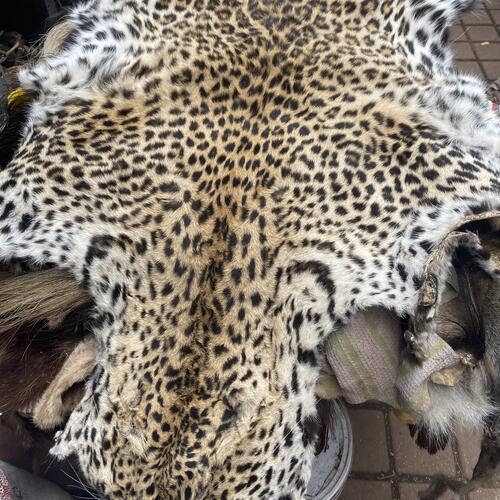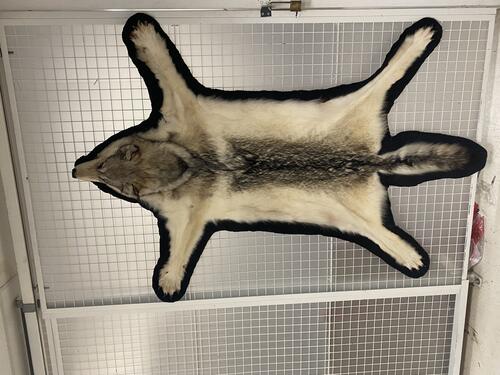A new study reveals that the illegal wildlife trade - worth billions annually - is deeply connected to other forms of organized crime, including arms dealing, drug trafficking and human smuggling.
By mapping these criminal intersections, researchers found that tackling the illegal trade in animals and plants requires understanding how it converges with other serious crimes. This approach can help law enforcement agencies focus on the key actors driving these global networks, rather than low-level offenders.
The illegal wildlife trade has wide-reaching implications for society globally. According to the study led by the University of Waterloo, learning how this activity intersects with other crimes can boost the efficiency of anti-trafficking interventions by concentrating on key players in large networks.
"Law enforcement agencies in South Africa, Hong Kong and Canada have identified links between this and other major crimes, which shows that wildlife trafficking is more than an environmental issue," said Dr. Michelle Anagnostou, now a Banting Postdoctoral Fellow at the University of Oxford, and who led this research as part of her PhD at Waterloo. "It is a complex, high-stakes criminal problem that affects public health, biodiversity and human security."

Leopard skin in a traditional wildlife market in South Africa. (Dr. Michelle Anagnostou/University of Waterloo)
While South Africa and Hong Kong are known hot spots for the illegal wildlife trade and part of this study, the researchers wanted to include Canada as well.
"Canada might not be the first country people think of in relation to illegal wildlife trade, yet our research finds it is occurring from coast to coast," Anagnostou said. "This study is unique because it shows that even high-income countries also experience this interconnectedness of criminal activity involving the illegal trade of plants and animals."

Seized wolf skin in Canada. (Dr. Michelle Anagnostou/University of Waterloo)
The next phase of the research will focus on understanding how best to implement anti-money laundering interventions to counter wildlife trafficking in Canada. Following the money trail allows law enforcement to determine the key players that are operating at the top level internationally and profiting the most from the exploitation of wildlife.
The research team used innovative methods of data collection and access to law enforcement and intelligence experts, who often cannot publicly share opinions or experiences.
"This study is a prime example of the kind of research that can inform policy with real-world experience to solve a global problem," said Dr. Brent Doberstein, a professor in the Faculty of Environment at Waterloo and Dr. Anagnostou's doctoral supervisor. "This work promises to both extend what we know about the complex world of illegal wildlife trade and help in designing interventions to reduce the extent of this crime."
The Social Sciences and Humanities Research Council of Canada (SSHRC) and UWaterloo funded the research. Other authors on the paper include Dr. Derek Armitage from Waterloo, Dr. Peter Stoett from the University of Ontario Institute of Technology and Dr. Ashwell Glasson from the Southern African Wildlife College in South Africa. For her outstanding academic achievement and inventive research, Dr. Anagnostou won the Governor General Gold Medal and the PhD Alumni Gold Medal at Waterloo's convocation.
The study, Disentangling and demystifying converging crimes and illegal wildlife trade in South Africa, Hong Kong, and Canada, appears in the Journal of Economic Criminology.






